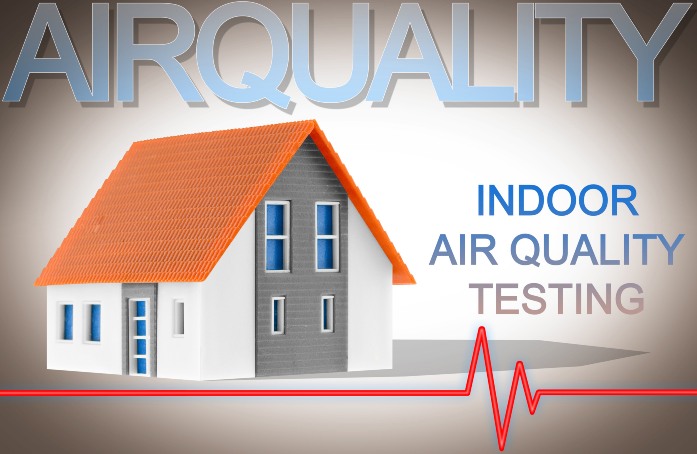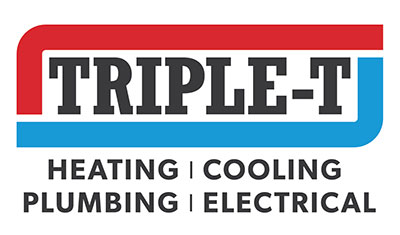Why Indoor Air Quality is Important
Why Indoor Air Quality is Important

What is Indoor Air Quality
Indoor air quality (IAQ) refers to the condition of the air inside buildings, including homes, offices, and other structures where people spend a significant amount of time. Air quality is influenced by various factors, including pollutants, humidity levels, and ventilation. Good IAQ means clean, healthy air that is free from harmful pollutants and contaminants.
Why is It Important to Have Good Indoor Air Quality?
Health Benefits
Poor indoor air quality can lead to a range of health issues. Short-term exposure to pollutants can cause headaches, dizziness, fatigue, and irritation of the eyes, nose, and throat. Long-term exposure, however, can lead to more serious conditions like respiratory diseases, heart disease, and even cancer. Children, the elderly, and those with pre-existing conditions are particularly vulnerable to the harmful effects of poor air quality.
For instance, dust mites, pet dander, and pollen are common indoor allergens that can trigger asthma and allergy symptoms. Mold spores, which thrive in damp and poorly ventilated areas, can lead to respiratory issues and exacerbate asthma. Volatile organic compounds (VOCs) emitted from household products and building materials can cause both short-term and long-term health problems. By improving indoor air quality, you can reduce these risks and promote better health for everyone in the household.
Comfort and Well-Being
Clean air contributes to overall comfort and well-being. When indoor air quality is good, people tend to feel better and more energetic. Poor air quality, on the other hand, can lead to discomfort and a lack of productivity. It can affect sleep quality, leading to fatigue and other health issues over time.
Good IAQ also enhances the overall indoor environment, making it more enjoyable to be in. Fresh, clean air can uplift your mood and create a more inviting atmosphere. In contrast, stale or polluted air can make you feel lethargic and irritable.
Performance and Productivity
The EPA has found that 1/20th of an inch of dirt or debris on your system heating or cooling transfer components will reduce the efficiency of your system by 21%.
In work environments, good IAQ is linked to improved performance and productivity. Employees in offices with clean air report fewer sick days and higher productivity levels. The same applies to students in schools, where better air quality can enhance learning and concentration. Studies have shown that poor indoor air quality can also negatively impact cognitive function, reducing concentration and decision-making abilities.
Studies have shown that poor indoor air quality can negatively impact cognitive function, reducing concentration and decision-making abilities. By improving IAQ, businesses and educational institutions can create healthier and more productive environments. This not only benefits individual performance but also contributes to overall success and efficiency.
Protecting Your Home
Good indoor air quality also protects your home. Poor AIQ can contribute to the deterioration of building materials, furnishings, and appliances. Mold growth, which thrives in environments with poor ventilation and high humidity, can damage walls, ceilings, and floors, leading to costly repairs.
High humidity can cause wood to warp and paint to peel, while low humidity can lead to cracks in walls and furniture. Pollutants such as dust and dirt can accumulate in HVAC systems, reducing its efficiency and lifespan.
How You Can Improve Indoor Air Quality
Regular Air Quality Inspections
Regular inspections by professionals can help identify and address any air quality issues in your home. Services offered by Triple-T Heating, Cooling, Plumbing, and Electrical can provide comprehensive air quality assessments and recommend solutions tailored to your needs.
Use of Air Purifiers
Air purifiers with HEPA filters can effectively remove contaminants from the air, such as dust, pollen, and pet dander. These devices can be particularly beneficial for individuals with allergies or respiratory conditions.
Maintain Proper Ventilation
Proper ventilation is vital for maintaining good IAQ. This included using exhaust fans in kitchens and bathrooms, opening windows when possible, and keeping your HVAC system functioning correctly. Good ventilation helps reduce the concentration of indoor pollutants.
Correct Humidity Levels
Maintaining appropriate humidity levels (30%-50%) can help prevent mold growth and reduce the presence of dust mites and other allergens. Dehumidifiers can be used in damp areas like basements, while humidifiers can add moisture to the air in dry conditions.
Regular HVAC Maintenance
Regular maintenance of your HVAC system is essential for ensuring good IAQ. This includes changing filters regularly, cleaning ducts, and having your system inspected by professionals. Clean air filters and ductwork help reduce the circulation of pollutants.
Use Natural Cleaning Products
Many household cleaning products contain volatile organic compounds (VOCs) that can negatively impact indoor air quality. Opting for natural, non-toxic cleaning products can reduce the release of harmful chemicals into your home’s air.
Houseplants
Certain houseplants can help improve air quality by absorbing pollutants and releasing oxygen. Plants like spider plants, snake plants, and peace lilies are known for their air-purifying properties.
Avoid Smoking Indoors
Smoking indoors is one of the leading causes of poor indoor air quality. Cigarette smoke contains numerous harmful chemicals that can linger in the air and on surfaces. Smoking should be done outside to protect indoor air quality.
Limit the Use of Synthetic Fragrances
Synthetic fragrances used in air fresheners, candles, and personal care products can emit VOCs. Choose fragrance-free or naturally scented products to reduce the presence of these chemicals in your home.
Monitor Your Indoor Air Quality
Using indoor air quality monitors can help you keep track of pollutant levels and humidity in your home. These devices provide real-time data and alerts, and help you take action when air quality drops.
Conclusion
Improving air quality is an investment in your health and well-being. By taking steps to reduce pollutants, control humidity, and increase ventilation, you can create a healthier, more comfortable living environment. For expert advice and service, contact Triple-T Heating, Cooling, Plumbing, and Electrical today and breathe easier, knowing that your indoor air quality is in good hands.
Triple-T Heating, Cooling, Plumbing, and Electrical, serving Utah for over 40 years, can keep your home comfortable year-round. From AC tune-ups to heater repairs, our licensed and insured technicians provide top-notch service. Awarded the Daily Herald Reader’s Choice for Best of Plumbing and HVAC, we’re committed to customer satisfaction. Established in 1974, our family-owned business supports Utah and Washington counties, and we actively give back to our community through various projects. Call us today for reliable and professional service and discover why we’re a trusted name in HVAC and plumbing.
For more information about our products and services, or to schedule a service appointment, contact us via our website or call 801-804-5697. We look forward to serving you!
